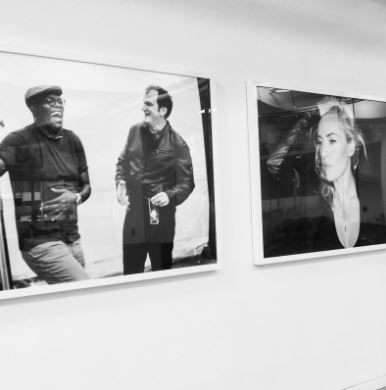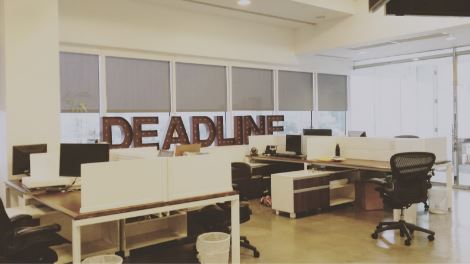This is the next in a series of posts by recipients of the 2018 Career Services Summer Funding Grant. We’ve asked funding recipients to reflect on their summer experiences and talk about the industries in which they’ve been spending their summer. You can read the entire series here.
This entry is by Derek Cano, COL ’19

Coming to a university like Penn has been one of the best experiences of my life. They have provided me, a first generation low-income student, the means to afford and attend a world class institution. Once again, Penn has gone above and beyond to offer me professional opportunities that truly have truly made a difference in my career development. This summer I had the incredible opportunity to intern for Untitled Entertainment in Beverly Hills. Untitled is an entertainment management company most known for managing clients like Madonna, Naomi Campbell, Emma Watson, and Uma Thurman.
My daily tasks at Untitled ranged from a variety of responsibilities. Since it was a medium sized office, I was able to take on a bunch of tasks. As all internships go, I cleaned the kitchen, sent out mail, delivered packages, and printed materials. However, specific to this internship I had the opportunity to get experience working reception (usually a starting place for many in entertainment), reading scripts, printing casting materials, writing coverage for managers and assistants, and covering desks for assistants. Each of these tasks that I would get to perform gave me a comprehensive understanding of what kind of everyday procedures go into being a manager in entertainment. This entertainment as whole helped me realize that I definitely want to get into entertainment management rather than agent work.
The entertainment industry as whole is quite complex and massive. Before coming to Untitled I had very little experience or knowledge of what negotiations, deals, and discussions go into large projects like movies or television series. This internship helped me a get a solid grasp on what film, television, and Broadway management are like from the perspective of talent representation. That is, those whose career’s are to represent actors and actresses.

One of the first big distinctions I learned this summer was the difference between a talent agent and a talent manager. At first this distinction was passed on me, I once thought they were the same but I soon learned that agents are meant to find and book roles for talent. Every actor or actress typically has an agent whose purpose is to find them roles in Television or Films. However, the manager is quite different. Of course they are involved in booking their clients with roles, but their purpose is to create careers for their clients. That is, they are tasked with managing the overall career of the performer. The manager tends to be a good friend to their clients, having multiple discussions throughout the weeks about a variety of topics from new roles to ordinary things like vacations. One time this summer, a manager at Untitled was discussing vacation plans with her client (Uma Thurman) and asked her assistant (who I was shadowing at the time) where Montenegro was? Silly right. Well they didn’t know, but luckily I did so I was able to get on the phone and speak to Uma Thurman about Montenegro. Therefore, as you see through this anecdote the role of the manager is much more personal with the clients than that of the agent.






